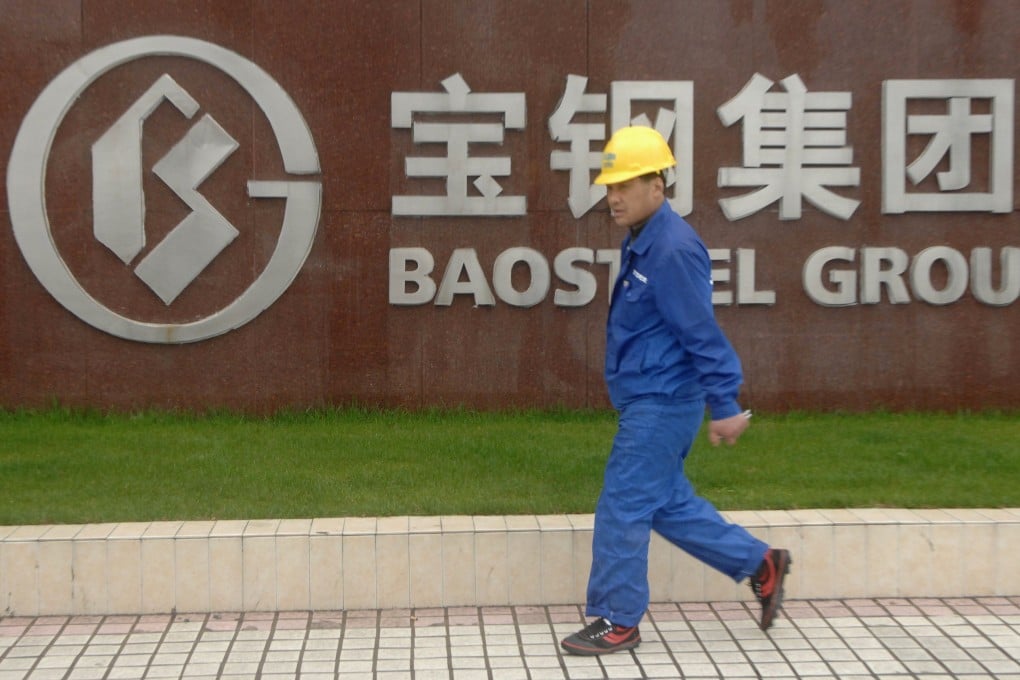Chinese state controlled companies reveal US$547 million of share purchases, buy-backs as Beijing steps up market support
- The government will increase its stakes in five listed state firms while state-owned Baoshan Steel plans to buyback its shares as China moves to support weak bourses
- Last week, Central Huijin Investment, a unit of the nation’s sovereign fund, bought shares in the big four state-owned banks for the first time in eight years

These plans, involving a total of around 4 billion yuan (US$547 million), were disclosed on the Shanghai and Shenzhen exchanges on Monday night. State-owned Baoshan Steel revealed it would spend as much as 3 billion yuan on buy-backs over the next 12 months, to be held as treasury stock for the purposes of future employee incentives.
The controlling shareholder of green-energy producer China Three Gorges plans to increase its stake in the company by spending between 300 million and 500 million yuan through the secondary market in the coming year, while China Railway Construction and surveillance camera maker Hangzhou Hikvision Digital Technology said their biggest shareholders would each buy 300 million yuan worth of their stocks over the next six months.
Leading miner China Coal Energy said its parent plans to buy as many as 50 million shares in the next 12 months, but did not reveal financial details, and semiconductor maker China Resources Microelectronics said its No 1 shareholder would spend at least 100 million yuan on increasing its ownership over the coming year.